By: Haley Kreft, RD, LDN, registered dietitian, MedStar Franklin Square Medical Center
What we eat affects all the systems of the body, from how we look and feel to how well our bodies work. If you look online, you’ll find site after site tells you what you should eat and drink and what supplements to take for just about anything that ails you.
But it’s important to remember that every person’s body and nutritional needs are unique. And with all that information floating around online, how do you know what’s healthy for you and what potentially could be harmful? The scary part is, you don’t—unless you work with a nutrition expert.
Registered dietitians specialize in helping people find personalized food choices that fit their lifestyle and help them feel healthier. Instead of providing generic advice such as "eat at least five portions of fruits and vegetables daily" or "lower your salt intake," registered dietitians offer a tailored nutrition approach. As a registered dietitian, my colleagues and I give tailored recommendations based on a person’s health history and unique needs.
How Can a Nutrition Expert Help?
Registered dietitians and licensed dietetic nutritionists are extensively trained in nutrition. We stay updated on current evidence-based practices so we’re always on top of the latest recommendations. We assess an individual’s current nutritional status, taking into consideration any current or past medical problems, and we educate people about healthy food and lifestyle choices.
Nutrition experts understand healthy meal planning and portion control, and we can help with more complex nutrition needs, such as:
Adapting to food allergy restrictions and special dietary needs
Recovering and regaining strength after surgery
Ongoing nutrition counseling for health, management of chronic illness, and weight loss
Finding this type of information on your own can be tough and even unsafe. For example, search online for “how food helps the body heal,” and you’ll find ample articles about superfoods, miracle foods, and what to eat after surgery. But none of these recommendations online take into account your personal health and nutrition needs.
It’s also important to note that nutrition information and recommendations can change over time. What you read in an online nutrition article from just a few years ago may be the opposite of what is considered healthy today. I’ll give you an example: Past recommendations stated that eggs should be eaten in moderation due to their high cholesterol levels. However, updated guidelines no longer restrict the consumption of eggs, as we believe dietary cholesterol intake minimally affects blood cholesterol levels especially when compared to the intake of trans fats and saturated fats. A nutrition expert will be aware of these updates and can help you make the best nutrition decisions for yourself and your family.
Nutrition Resources You Can Use at Home
Another perk of working with a registered dietitian is that we’re great resources for information you can use on a daily basis. While a lot of our recommendations come from talking with you about your nutrition goals and health history, we also provide national guidelines that you can use to help get your nutrition on track.
Here are a few of our favorite national resources:
Choose MyPlate: This easy-to-follow site offers visual tips to balance your plate with healthy food choices.
EatRight: The Academy of Nutrition and Dietetics website offers up-to-date general nutrition recommendations for families.
Parent Tips: How to use nutrition facts labels: Do you know what’s in your kids’ food? This resource provides tips about what to look for to make healthy choices for them.
If you’re ready to start eating healthier, it’s OK to look online for basic information. But when it comes to making lasting changes to improve your health and well-being, consider seeking support from a registered dietitian. You are what you eat—you deserve the knowledge to make choices that will keep you healthy, strong and energized for years to come!


